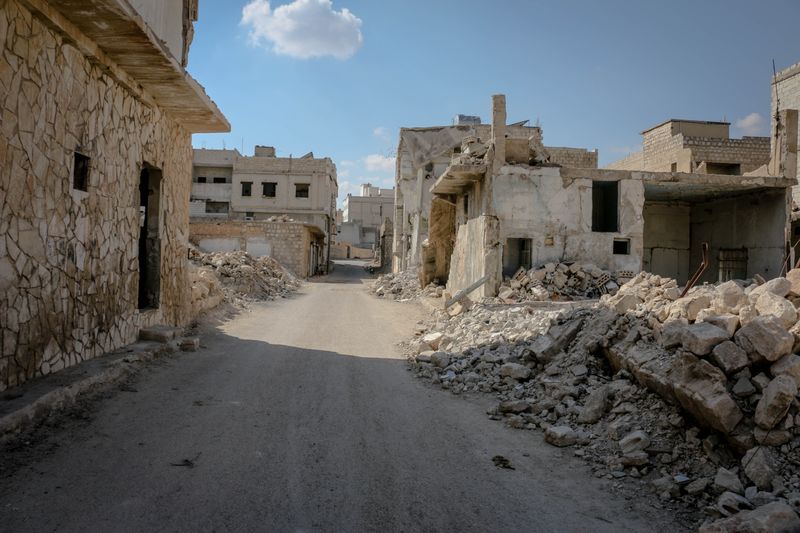Putin Accuses Poland of Aggression Against Belarus, Warns of Attack on Russia
In a recent statement, Russian President Vladimir Putin accused NATO member Poland of having territorial ambitions in the former Soviet Union and issued a warning that any aggression against Belarus, Russia‘s close ally, will be considered an attack on Russia itself. These statements have led to heightened tensions between Russia, Poland, Belarus, and NATO as they scramble to respond to the situation.
Territorial Ambitions and Historical Disputes
Putin‘s accusation against Poland stems from reports of Polish military units being deployed to eastern Poland in response to the presence of Russian Wagner mercenaries in Belarus. Warsaw denies any territorial ambitions in Belarus, but Putin claims that the western part of Poland was a gift from Joseph Stalin and that Russia will remind the Poles about it.
This reference to historical disputes and territorial claims adds fuel to the fire and highlights the deep-seated animosity that still exists between Russia and some Eastern European nations. The region has a complex history of border changes and power struggles, which continue to shape geopolitical dynamics today.
Possible Motives and Risks
The accusations made by Putin against Poland raise questions about his motives and intentions. Some experts believe that Putin is using this situation as a distraction from domestic issues within Russia, while others think it is part of a broader strategy to assert Russian dominance in Eastern Europe.
Regardless of the motivations, the risks of escalating tensions in the region are significant. The deployment of tactical nuclear weapons by Russia in Belarus and the involvement of Russian Wagner mercenaries in training Belarusian special forces near the Polish border are alarming developments. This has prompted concerns within NATO and Germany, with Defense Minister Boris Pistorius expressing support for Poland in defending the eastern flank of the military alliance.
Military posturing and aggressive rhetoric from both sides further heighten the potential for miscalculation and a potential military confrontation. The situation requires careful diplomacy and dialogue to prevent a further escalation that could have severe consequences for regional stability and global security.
Wagner Mercenaries and Proxy Conflicts
The presence of Russian Wagner mercenaries in Belarus and their connection to the ongoing conflict in Ukraine adds another layer of complexity to the situation. Wagner, known as Russia‘s most effective fighting force, has been involved in various conflicts as a proxy for Russian interests.
The video footage of Wagner chief Yevgeny Prigozhin welcoming his fighters to Belarus and ordering them to gather strength for operations in Africa while training the Belarusian army raises concerns about Russia‘s intentions and long-term plans in the region.
It is essential for the international community to closely monitor the activities of Wagner and other similar groups to prevent further destabilization and proxy conflicts in Eastern Europe and beyond.
Editorial: Finding a Path to Deescalation
The current tension between Russia, Poland, Belarus, and NATO presents a significant challenge for global diplomacy. The stakes are high, and the potential consequences of a military confrontation cannot be underestimated.
While acknowledging Russia‘s concerns about NATO encroachment and historical disputes, it is crucial to prioritize dialogue and diplomatic solutions. Engaging in a war of words and military posturing will only further polarize the situation and increase the risk of a miscalculation that could have disastrous consequences.
The international community, led by the United Nations and European Union, must act as mediators and facilitators to encourage dialogue between all parties involved. Confidence-building measures, such as reducing military exercises and increasing transparency in military deployments, can help diffuse tensions and build trust.
Furthermore, addressing the underlying grievances and historical disputes between Russia and its neighbors requires a comprehensive approach. Historical dialogue initiatives, truth and reconciliation commissions, and efforts to promote understanding and empathy between nations can help heal wounds and prevent future conflicts.
Finally, it is essential for the international community to strengthen support for the sovereignty and independence of Belarus. The country has been caught in the crossfire of competing geopolitical interests, and efforts must be made to protect its people and prevent further escalation.
Advice: Australia’s Role in Promoting Peace
As an ally of both the United States and a member of the Indo-Pacific region, Australia has a role to play in promoting peace and stability in Eastern Europe. While geographically distant from the conflict, Australia’s voice carries weight on the global stage.
Australia should use its diplomatic influence to advocate for dialogue, deescalation, and a peaceful resolution to the tensions in Eastern Europe. By engaging with regional and international partners, Australia can contribute to the collective effort in preventing a military confrontation and fostering a peaceful resolution.
Additionally, Australia can offer support in terms of humanitarian aid and assistance to Belarus, which may bear the brunt of any escalation in the conflict. By providing assistance to those affected by the crisis, Australia can demonstrate its commitment to upholding international norms and protecting vulnerable populations.
Ultimately, the path to peace and stability in Eastern Europe lies in diplomacy, dialogue, and a commitment to resolving conflicts through peaceful means. Australia, along with the global community, must actively work towards deescalation and preventing further aggression in the region.

<< photo by Pixabay >>
The image is for illustrative purposes only and does not depict the actual situation.
You might want to read !
- Min Woo Lee’s sensational surge puts him in the mix at the British Open
- World Cup Fiasco: A Divided World Revealed by Penalty Controversy
- Battle at the Borders: Philippines Takes on Switzerland
- Goodbye, Captain: Jordan Henderson Departs Liverpool Camp as Clubs Finalize Agreement
- Younger Age and Higher Medial Tibial Slope: Predicting Increased Revision Rates in Joint Surgeries in Australia
- “Putin’s Warning to Poland: A Provocation that Demands a Strategic Response”
- Breaking Point in Ukraine: Deadly Attack on Crimean Bridge Ignites Tensions
- Ukraine’s Bold Admission: Taking Ownership of Latest Assault on Critical Crimea Bridge
- “Cinderella Story: Rublev Stuns Bublik, Secures Historic Wimbledon QF Spot”
- From Comrade to Guest: Belarus’ Bold Move to Host Leader of Russian Rebellion
- Diplomatic Twitter Truce: Morgan and Whitehead’s Hilarious Reconciliation
- Risky Business: Bronco’s Knee Raise Sparks Controversy
- The Symbolic Story etched in the Star’s Tattoo
- “Breaking the Stalemate: Warriors Roar against Raiders in NRL Showdown”
- “Johnson’s Golden Point Heroics Break Raiders’ Resolute Defense”




